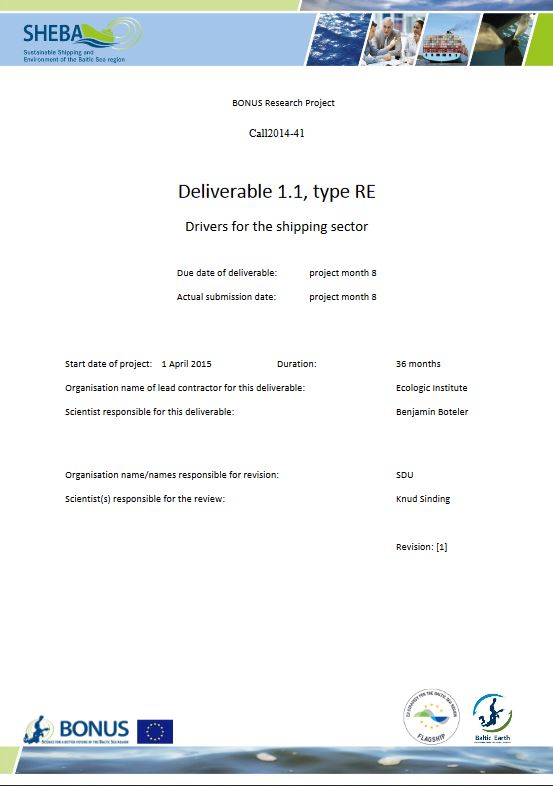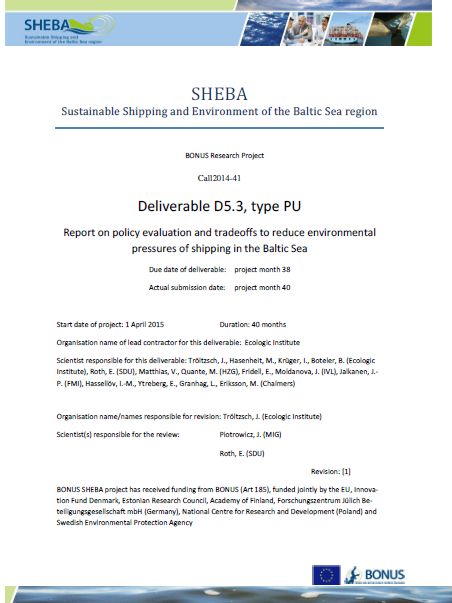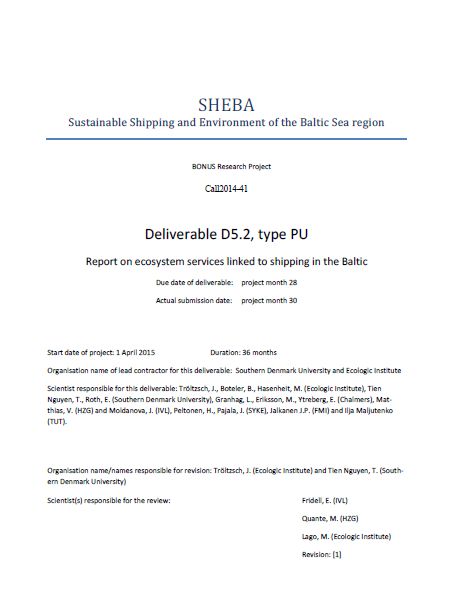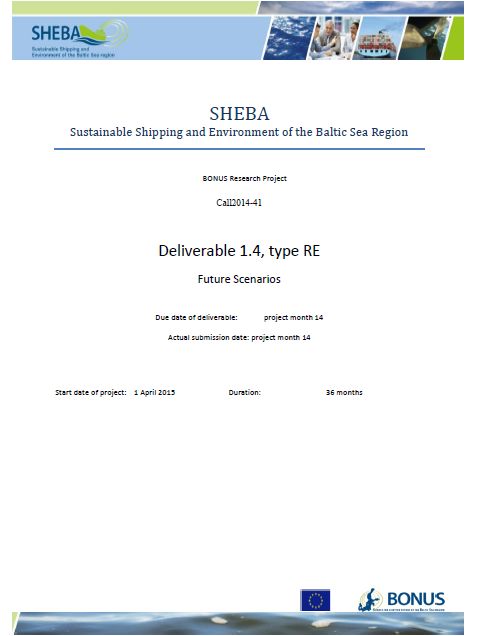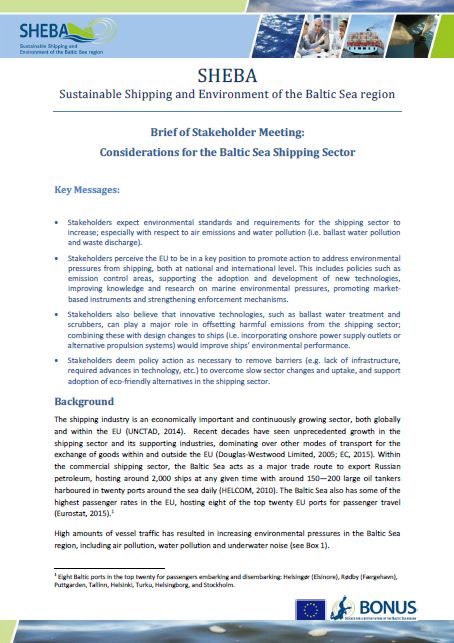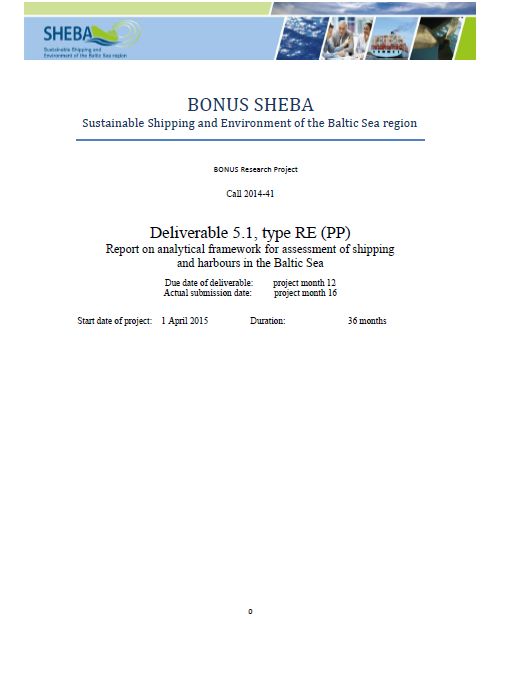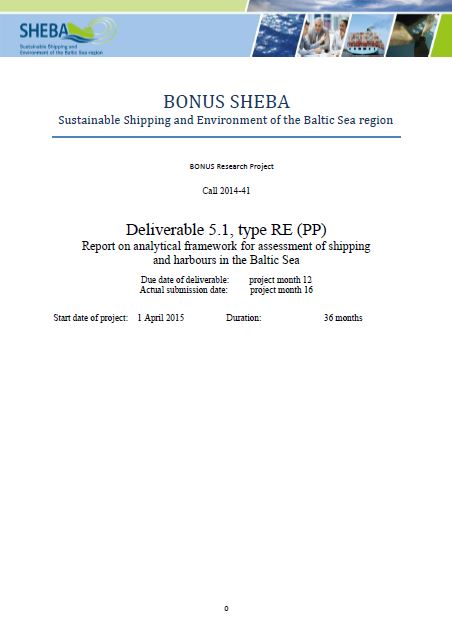The Baltic Sea is subject to intense shipping, leading to significant affects on the marine environment. Awareness about the potential impacts from shipping on the Baltic Sea is increasing while the contribution of shipping to the total pressure on the marine environment is not well understood. There is a need for increased scientific knowledge about these potential with respect to improving ship performance, increasing numbers of ships, and the use of measures to tackle this policy challenge.
Towards Sustainable Shipping in the Baltic Sea
The project, Sustainable Shipping and Environment of the Baltic Sea region (SHEBA) funded by the BONUS programme, brings together lead experts from a variety of fields to provide an integrated and in-depth analysis of the ecological, economic and social impacts of shipping in the Baltic Sea. Ultimately, the project will help to devise solutions for the development and implementation of policies at the EU, Baltic Sea region, national and local levels.
To do this, SHEBA will seek to identify and analyse the driving forces underpinning shipping and its potential increase in the Baltic Sea region, as well as develop a set of scenarios to understand potential future impacts from shipping. Further, it will assess the impacts of shipping such as underwater water noise, pollutants and emissions on the marine environment. It will assess these in relation to key EU policy objectives stemming from the Marine Strategy Framework Directive (MSFD) and Water Framework Directive (WFD). Furthermore, the project will provide an integrated (ecological, economic, and social) assessment of policy options to mitigate pressures linked to shipping, and the possible anticipated changes to ecosystem services. This will include an analysis of trade-offs between options as well as synergies, and the marginal changes in costs and benefits of options to reduce environmental pressures from shipping and support the achievement of policy goals.
Ecologic Institute's Role in SHEBA
Ecologic Institute leads research to develop and implement an integrated assessment for shipping in the Baltic Sea, using an ecosystem services approach to evaluate the effectiveness and benefits of proposed measures for the shipping sector. The assessment will also include an analysis of the economic and societal effects of identified alternatives for shipping to comply with environmental regulations. Further, Ecologic Institute leads work on the main economic, social and policy drivers affecting the shipping sector in the Baltic Sea region.



